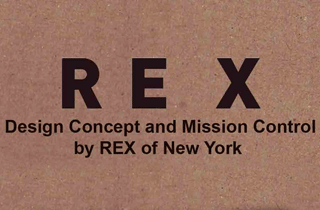
So let’s talk about your idea of architecture as a social response. Why is that such a factor in your design?
I think it’s about being responsible. Architecture is a pursuit that ought to be seen in a more responsible light than it is. And I think that architects ought to be responsible to society in a number of ways and they need to do that for two reasons: number one is that they’re—presumably—human beings, and secondly, if we don’t do it, who the hell is going to?
We have to behave responsibly. That’s what’s fabulous about architecture; it’s like many other things in life. It’s transparent. If you’re interested in marketing and branding, you’ll be known for it. If you’re interested in being perceived as an aesthete, you’ll be known. If you’re socially responsible, you make your own judgments. You, Eva Hagberg. Me, Stanley Tigerman. Everyone else. I think that’s where architecture is at. It’s taken me my whole life to figure that out.
I’m not very smart. It takes a long time to figure this crap out. But I finally did. Do you want to spend a lifetime doing suburban villas for princes and princesses, or do you do something for people who really need what you do? Do you make your own decisions?
So one of the ways you try and change things is by teaching. What’s your plan there?
If you look at an educational curriculum, do you find any courses on ethics? I don’t think so. [EH, internally: My mom teaches ethics.] What you find is a lot of courses on computer technology to make you useful in an office. Is that what education is about? These are interesting questions. You gotta ask them. What about the AIA? You want to look at the website of the AIA ethics clause? When I joined the AIA forty-three years ago you couldn’t displace another architect without letting him know. You couldn’t undercut fees. You couldn’t market, you couldn’t brand. Now you can undercut fees, you can market, you can brand. And the AIA forces it at their conventions by spending tons of time on shit like marketing and branding! I’m asking YOU the questions.
Well….
I mean, why the fuck doesn’t Metropolis branch outside this interview? Spend the bulk of every goddamn issue on these ethical subjects, instead of branding Hariri + Hariri, or Peter, all of whom are very good architects of course. There’s this other side, the crappy architects you guys publish, at least these guys are really good. But I think encouraging signature work in formalistic ways is discouraging to people who are trying to be responsible, say, environmentally. Where were architects in the leadership field? Where were architects when ADA loomed large on the horizon? Were they leaders in terms of sustainability? Absolutely not.
Things didn’t make any sense to me in architecture school. We were shown images, then told, “You won’t understand this for five years but that’s ok.” I thought then when I didn’t get it that it just meant I was stupid. I think now that was an unfortunate way to teach. Why is architectural education so incomprehensible?
From Metropolis Magazine : http://www.metropolismag.com/cda/story.php?artid=3333
























































3 comments:
You want arcane? Check out the Morphosis website.
It's refreshing to see critical statements about the current state of architectural celebrity. Its amazing how easily everyone gets caught up in the hype. I agree with the social responsibility that we, as architects must uphold, yet too often it is completely overlooked.
-Lucas Gray
www.talkitect.com
God bless Stanley!
Post a Comment